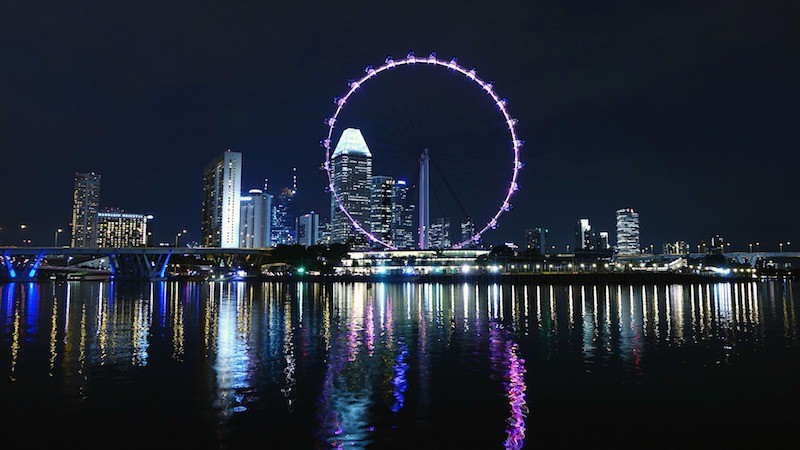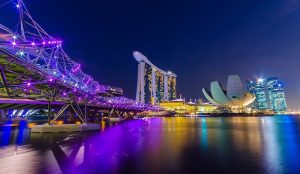Singapore company incorporation service is increasingly popular as it is a favorable jurisdiction for business investment. The nation has an efficient legal system and a skilled, English-speaking workforce. Political and economic stability, as well as strong intellectual property laws make it attractive to those wishing to do business in the region. It is consistently toward the top of the Forbes and US News “Best Countries for Business” lists. When it comes to Singapore company formation, there are several choices.
Business Entities in Singapore
Locally Incorporated Company – Most Popular Choice
Singaporean companies are legal vehicles for incorporation which are registered under Chapter 50 of the Companies Act. Locally incorporated companies are their own legal entities in Singapore. They have the ability to own property. Locally incorporated companies have perpetual succession. They also have the ability to file lawsuits or be sued in their own names. Companies frequently have the words “Pte Ltd” or “Ltd” as part of their names. These companies have all of the tax and legal protection benefits that Singapore offers. Thus, it is the most popular choice on this list. We discuss the tax benefits below.
Branch of a Foreign Company
Branches of foreign companies which operate in Singapore are legally a part of a foreign company. Simply put, a branch is a company formed elsewhere and then registered so that it can conduct business in Singapore. Because it one company operating in two (or more) countries, the branch is not a separate legal entity. As a result, the foreign company’s head office is legally liable for any debts and obligations belonging to its branch office. Singapore branch offices are not considered resident for tax purposes. As a result, there are no tax exemptions or benefits compared with a locally incorporated company. The main advantage of a branch versus a locally incorporated company is that a branch is slightly easier to register. However, locally incorporated companies offer significant tax advantages over branches of foreign companies. So, forming a new company in Singapore, in almost all cases, is what most businesspeople prefer.
Sole Proprietorship
Sole proprietorships in Singapore are businesses which one person or company own. The sole proprietor does not have any partners. As a result, the sole proprietor has complete control over how the business is run.
Partnership
In Singapore, a partnership is a business formed between two and twenty individuals. If the number of individuals in a business exceeds twenty, the business must be registered as a company under the Companies Act.
Limited Partnership
Limited partnerships are partnerships which exist with a minimum of two partners. At least one partner must be a general partner. At least one partner must also be a limited partner. Limited partnerships are not considered to be separate legal entities from their partners. Natural persons or corporations may be general partners or limited partners in a limited partnership.
It is not mandatory to hire a local manager for an LP unless all of the partners reside offshore. General partners are responsible for the actions of an LP. General partners are liable for all of the LP’s debts and obligations. Limited partners in an LP are only liable for the company’s debts and obligations up to the value of their contribution to the partnership.
Under Singaporean law, it is required for an LP to register the names of any and all limited partners with the Accounting and Corporate Regulatory Authority (ACRA). If no limited partner is registered with ACRA, the registration of the LP will be suspended. The general partner will them be deemed registered under the Business Names Registration Act. If someone registers a new limited partner with ACRA, the registration of the LP will be restored. At that time, the registration of the general partner under the Business Names Registration Act will cease to exist.
The registrant of an LP is also required to stipulate whether or not the proposed LP falls under Regulation 12 of the LP Regulations. Regulation 12 applies when the LP’s primary function is to establish a fund for investment. It also applies when a “license fund manager” manages the fund. A licensed fund manager may be the general partner or another person whom the general partner chooses. “Licensed fund managers” are licensed under the Securities and Futures Act. They are licensed to carry out fund management business.
Limited Liability Partnership
Limited liability partnerships are flexible legal vehicles for doing business in Singapore. LLP’s provide their owners with the flexibility to operate as partnerships while maintaining a separate legal entity like a private limited company.
In Singapore, LLPs are seen as corporate bodies and are considered separate from their partners. Since LLP’s have perpetual succession, changes in partners will not affect the existence of the separate legal entity. Partners in an LLP are not personally liable for debts or obligations incurred by the business. A partner can only be liable to the debts of an LLP if those debts were incurred as the result of that partner’s wrongful act or omission. Partners may not be held personally liable for the actions of other partners.
LLP’s are required to maintain accurate accounting records. These records include profit and loss sheets and balance sheets. It is expected that these records will provide a sufficient explanation for the transactions and financial position of the LLP. If these records are not accurately maintained, the LLP and all of its partners are subject to prosecution. If convicted, partners face fines, imprisonment, or both. LLPs are also required to make annual declarations of solvency or insolvency. These records must be made available to the public.
Tax Incentives for Singapore Corporations
Singapore offers an extensive range of tax incentives designed to stimulate foreign investment. These incentives include tax holidays and concessions, accelerated depreciation schemes, favorable loan conditions, equity participation, and high-quality industrial estates. These incentives are designed to attract people and companies who will promote the economic and technological development of Singapore. The various incentives that Singapore offers are described in detail in the Income Tax Act and the Economic Expansion Incentives Act (EEIA). These Acts govern a wide variety of business activities.
Under the incentive schemes, concessionary tax rates range from 0% to 15%. This is a minimum of 2% less than the headline corporate tax rate of 17%. The rate generally correlates with the company’s economic impact and commitment in Singapore. The more jobs a company creates in Singapore and the more local business it conducts, the less it will be taxed.
Applications for the various incentive programs may be submitted to the Economic Development Board (EDB), International Enterprise Singapore (IES) and the MAS. Singapore is mostly a free port. Companies incorporated within Singapore’s borders should not expect protection in the form of tariffs or quotas for industrial activities.
One of the most popular incentive schemes in Singapore is the Productivity and Innovation Credit (PIC) Scheme. The PIC scheme is designed to promote productivity and innovation within Singapore. It is a broad-based tax scheme which provides a total 400% tax deduction for each of six qualifying activities. These activities include research and development and the acquisition and in-licensing of intellectual property rights. They also include the registration of intellectual property rights and approved industrial or product design carried out in Singapore.
Finally, they include the acquisition or lease of equipment or software designed to automate processes and training of employees for skill development purposes. In lieu of the deduction, it is also possible for Singaporean companies to take an. allowance for the first SGD 400,000 of qualifying expenses which were made during years of assessment 2011 to 2018. These expenses must be related to the above six listed activities. In order to support the growth of small businesses, this expenditure can be converted to a non-taxable cash payout. This payout is subject to an annual cap of SGD 100,000.
Singapore Country Profile
The island of Singapore was known as a Malay trading port by the 14th century. Various forces occupied the settlement over the following centuries until it was burned down in the 17th century. Great Britain formed a trading colony in what is now known as Singapore in 1819. Singapore joined the Malaysian Federation in 1963. The country was kicked out of the federation two years later. It became its own independent nation in 1965.
Since gaining independence, Singapore has become one of the world’s wealthiest nations. Singapore has strong international trading ties. It possesses one of the world’s busiest ports in terms of tonnage handled. The nation’s GDP is equal to that of many Western European countries. Singapore’s official languages are Mandarin, English, and Malay.
Singapore has a highly developed free market economy. Known as one of the Asian Tigers, Singapore underwent rapid industrialization and has maintained exceptionally high levels of economic growth. The economic climate is very open. The nation ranks relatively low on corruption indexes.
Unemployment is very low in Singapore. The nation’s economy is heavily dependent on exports, especially those related to consumer electronics, information technology, medical devices, and pharmaceutical drugs. Singapore has robust transportation, business, and financial sectors. The economy in Singapore shrank by 0.6% in 2009 during the global economic crisis. However, it has seen steady growth for several years.
The Singaporean government is currently trying to restructure Singapore’s economy. The government hopes to decrease dependence on foreign labor, increase local wages, and drive productivity. Singapore has become an important financial center for investment in advanced manufacturing, pharmaceuticals, and medical technology. Singapore formed the ASEAN Economic Community in partnership with other ASEAN member countries in 2015. Singapore is also a member of the Regional Comprehensive Economic Partnership negotiations. The negotiations include nine other ASEAN member countries in addition to Australia, China, India, Japan, South Korea, and New Zealand. Positive economic trends will likely spur further investment and growth within the region.




